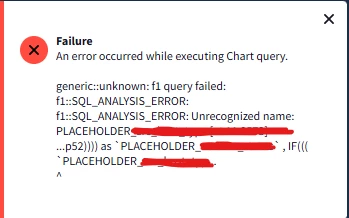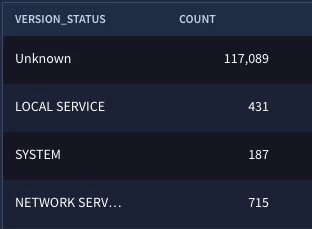Hi everyone,I’m currently working on preview dashboards in Google SecOps and facing an issue when trying to use one placeholder within another in the meta (upper) section of a query.
Here’s an example of my query:
event_type="xyz"
$version = if(version != "", version, "Unknown")
$version_status = if($version = "v1", "vs1", "vs2")
match:
$version_status
outcome:
$count = count(id)
The issue arises when I reference $version inside the calculation for $version_status. This results in an error, which I have attached as a screenshot.

Is there any guidance or documentation available on how to handle such cases? Any help would be greatly appreciated!
Thanks,
Prashant






